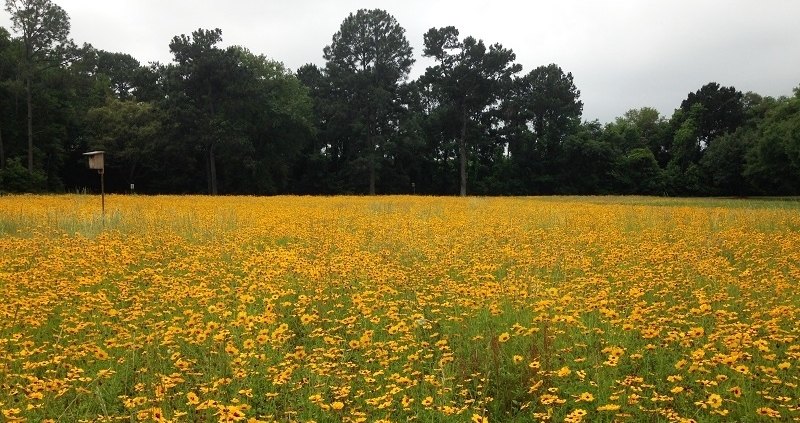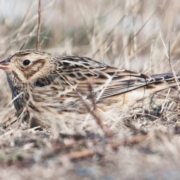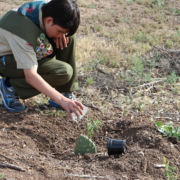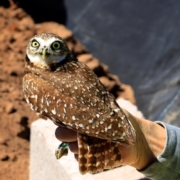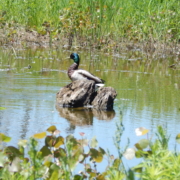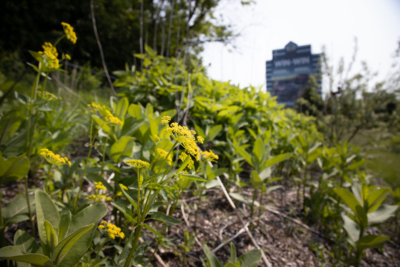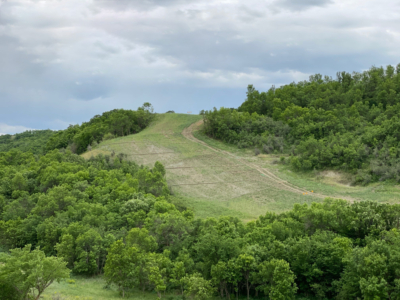Bacardi Bottling Corporation Jacksonville | Creativity, Flexibility and Resiliency in Conservation
Bacardi’s operations have coexisted with wildlife since the company’s inception — the brand’s distinctive bat logo was inspired by the bats that lived in the rafters of the Santiago de Cuba distillery in which the Bacardi family first made, stored and aged their rum in the 1860s.
Today, at the Bacardi Bottling Corporation site in Jacksonville, FL, spirits are produced and bottled on a 90-acre property that provides ample space for local wildlife. An on-site habitat is managed by a group of dedicated employees known as the Green Team, which since 2016 has been led by co-chairs Kara Bogden, Senior Beverage Scientist, R&D, and Eric Hearn, Environmental Health & Safety Site Coordinator. The team has always approached conservation with a sense of adaptability. This mindset proved invaluable in 2020 — when the COVID-19 pandemic led to canceled events and logistical challenges, the team found creative ways to continue with their work.
At stake was a long-standing conservation program that has provided wildlife with quality habitat and has allowed the team to build a rapport with other employees and partners throughout North Florida. The program, which first achieved WHC Certification in 2013, contains 22 acres of native warm season grasses and wildflowers, a pollinator garden, and structures to attract bats and birds. This land once contained high-maintenance turf grass, but now supports local wildlife while also reducing on-site landscaping costs in a subtropical region where plants grow quickly for most of the year. The Green Team partners with the Lubee Bat Conservancy in Gainesville, FL to construct the site’s bat houses. (The conservancy was founded by Luis F. Bacardi, who was the great-grandson of the company’s founder and passionate about bat conservation.) They also work with the Florida Fish and Wildlife Conservation Commission and the Jacksonville Zoo on a long-term bat study that utilizes acoustic monitoring techniques. The avian project has likewise allowed the team to connect with the greater Jacksonville community, including local scouts who constructed boxes for eastern bluebirds. Monitoring has demonstrated an increase in bluebird fledglings over time, and on his walks throughout campus, Eric has been pleased to see more bluebirds year-round.
The pollinator garden was originally in the back of the campus, but in response to employee enthusiasm, the team moved it to the front, and it’s now one of the first things employees and visitors see when they arrive on-site. The team leveraged the popularity of this pollinator work to creatively engage with employees throughout the pandemic.
When the team had to cancel their large-scale annual Earth Day event, they instead distributed pollinator plant seeds to employees for them to plant at home. Bacardi employees live all around the Jacksonville area, as far as 40 miles away from the facility, so this activity has allowed the team to transform yards across the region into pollinator habitats and outdoor classrooms. “It was great,” Kara recalls, “People would stop us and talk about how their milkweed was growing and how excited their kids were to find chrysalises in their yard.”
In November, the team invited employees to a socially distanced on-site planting event, resulting in a record turnout. The team attributes this to a desire to return to campus on the part of currently remote employees, and a newfound appreciation of nature overall.
The pandemic not only shaped large-scale events, but also routine monitoring and maintenance. While plant operations kept going, many employees went at least partially remote, reducing the personnel free to assist on-site. Moreover, tasks are usually done in pairs, but became solo efforts per distancing regulations. The team was, however, determined to stay consistent with their work. For instance, they still performed nest monitoring on the same dates that this information has been collected in previous years, identifying an employee who was scheduled to be on-site on each date, and assigning the duty to them. While, as Eric notes, these tasks lost their social aspect this year, they instead offered employees a unique way to “break from work and get out in nature,” providing stress relief in a difficult time.
Although they’ve had a trying year, the Green Team shows no signs of slowing down. They are in the process of installing satellite wildflower gardens along the pathway that leads from the parking lot to the site’s main building. The team was able to get these gardens funded through a wellness initiative, as they will benefit not only wildlife, but also employee morale. The team has also worked with the Duval Audubon Society, discussing ways to engage adult learners via on-site community events, which they hope to start hosting once the pandemic has subsided. As employees return to campus, Kara and Eric expect to see an influx of Green Team participants. As Kara notes, the pandemic has made people realize that “we are just a small part of this world,” and many have taken more time to stop and appreciate nature. The team looks forward to keeping this momentum going into 2021, and beyond.
Related Content
- Blogs
- Webinars
- White Papers
- Project Guidances
Quick Facts
| Site Name: | Bacardi Bottling Corporation |
|---|---|
| Category: | Member Spotlight |
| Tags: | avian, bats, grasslands, habitat, Species Management |
| Site Location: | Jacksonville |
| Partners: | Duval Audubon Society, Florida Fish and Wildlife Conservation Commission, Jacksonville Zoo, Lubee Bat Conservancy |
| Project Types: | Avian, Bats, Grasslands |
| Certification Since: | 2013 |
| Certification Level: | Silver Certified |
| WHC Index Link: | View Project |
